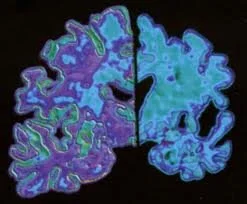Ten Symptoms of Early Stage Alzheimer's Disease
by Bob DeMarco for Alzheimer's Reading Room:Doctors are not good at diagnosing Alzheimer's and neither are spouses or children.Previously I wrote -- What Was The First Sign of Alzheimer's Disease in Your Case? In that article I asked Alzheimer's caregivers to list one or two things (memory problems, , or events) that might have alerted them to Alzheimer's dementia earlier.Most of the Alzheimer's caregivers I know can look back and identify symptoms and behaviors that they now know were early signs of Alzheimer's dementia.One of the things that Alzheimer's caregivers learn is that the sooner that Alzheimer's is diagnosed the better the potential outcome. A failure to spot Alzheimer's early can be disastrous.I also learned over the years that typically when an elderly person starts to act out behaviors that are early signs of dementia little or nothing is done. You often hear these words or explanation -- they are just getting old.Personal care doctors are not good at diagnosing Alzheimer's and neither are spouses or children. This happens because Alzheimer's is usually hard to diagnose until a "big problem" or "big event" occurs that calls for an investigation into that problem or event.Neither the doctors, spouses or children are to be blamed for the inability to spot Alzheimer's early. Alzheimer's disease, in most cases, sneaks in and is sinister in its ability to hide.Alzheimer's can confuse anyone and everyone. It can even confuse a veteran Alzheimer's caregiver -- Alzheimer's Patients Can Deceive Outsiders with Their Behavior.In an early stage of dementia a person can still function in a fashion that appears normal. Driving, shopping, living alone. However, their memory is deteriorating and they begin to evidence behaviors that are not "normal" even if they are "OLD".The confusion about Alzheimer's like behavior occurs because early dementia is like a chicken/egg disease. What counts more? The bizarre behaviors like meanness, worries about money, shuffling the feet? Or, the perception that the person can function normally and perform tasks like driving and shopping? Most people will opt for a simple explanation -- they are just getting old. This explains the new and different behaviors they see.I am in the habit of saying, if you are worried that there is something wrong there is something wrong. I came to this conclusion because I worried for years before finally taking action with my mother. I now know many caregivers -- they are me, and I am them.The day you say to yourself, they are just getting old is the day to schedule memory testing and behavior testing from a doctor that is a specialist. The personal care physician is not the "right" doctor to do this testing.Alzheimer's disease is progressive, meaning it worsens over time. Alzheimer's is also terminal, meaning all who develop it will eventually succumb to it. As Alzheimer's rides its course, it renders those who suffer from it increasingly dependent on the care of others.This is true for all people who develop Alzheimer's, but the particular symptoms and the degree to which they show themselves vary among individuals. For convenience, the progression of Alzheimer's is often divided into three stages: early/mild, middle/moderate, and late/severe.The symptoms and signs of Alzheimer's have been identified by observing people with Alzheimer's disease as a group. An individual may not show all of the symptoms in each stage of progression.It may help friends and family to familiarize themselves with the typical stages of Alzheimer's disease so that they know what to expect in the coming years. The early/mild stage of Alzheimer's is characterized by declining ability to form new memories, impaired ability to organize and manipulate complex ideas, and, sometimes, by personality changes.Symptoms Mild Dementia/Early Stage Alzheimer's disease
- Diminished short-term memory
- Misplacing belongings in odd places; losing valuable belongings, like wallet or purse
- Difficulty finding the right word: "Tip of the tongue" syndrome
- Person seems "not himself" and shows uncharacteristic behaviors
- Lapses in judgment
- Difficulty with mental arithmetic and handling money
- Disorientation in unfamiliar places or situations
- May become apathetic or withdrawn, avoiding social situations
- More difficulty with routine tasks at work or at home, or may take longer to complete tasks
- Irritation or anger in response to increasing memory lapses
Specific Examples
- Asks the same question repeatedly within the same conversation
- Puts car keys away in refrigerator
- Unable to recall word for "car" and then says in frustration, "The thing you drive to work in."
- A normally shy person becomes uncharacteristically outgoing or talkative at a family gathering
- Agrees to buy services or products he/she doesn't need from telephone sales person
- Finds it difficult to balance checkbook or figure out correct amount of money to pay for an item while shopping
- Forgets to eat, skips meals, or eats the same food every meal
Source: Alzheimer's Reading Room (no longer available online)

